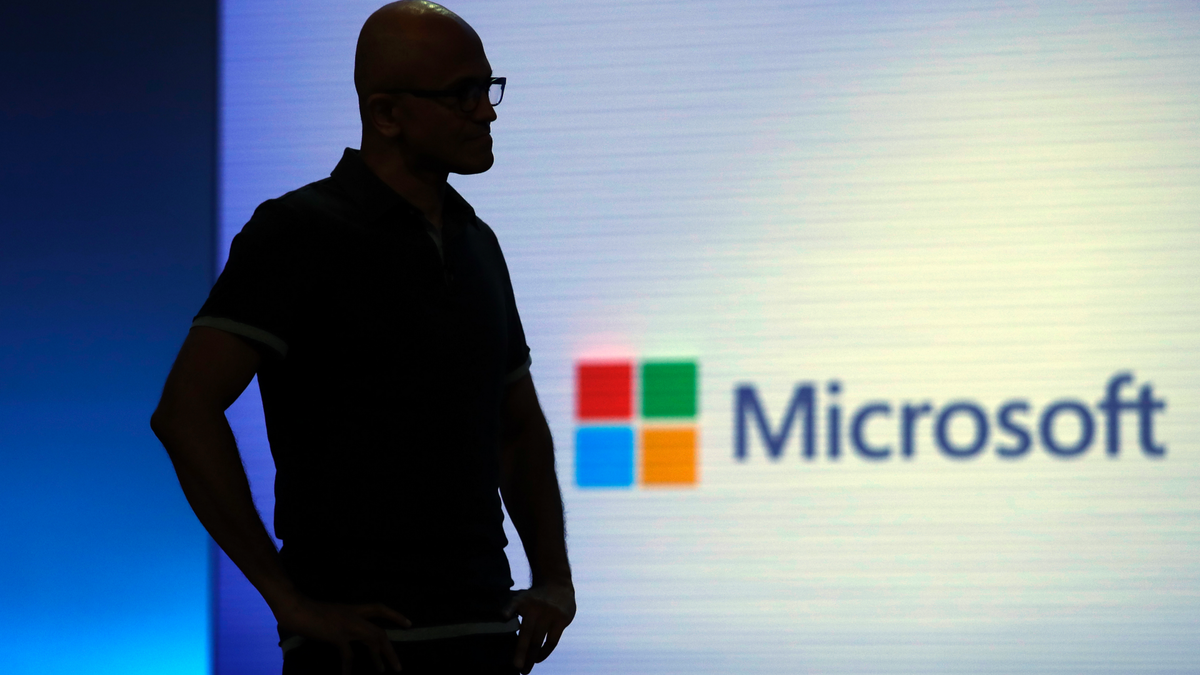
FILE- In this May 7, 2018, file photo Microsoft CEO Satya Nadella looks on during a video as he delivers the keynote address at Build, the company's annual conference for software developers in Seattle. (AP Photo/Elaine Thompson, File)
Microsoft is ratcheting up its call for government regulation of facial recognition technologies by warning that they could pave the way for a "1984"-like dystopia if left unchecked.
"Unless we act, we risk waking up five years from now to find that facial recognition services have spread in ways that exacerbate societal issues," Microsoft President and Chief Legal Officer Brad Smith wrote in a Thursday blog post. "We must ensure that the year 2024 doesn't look like a page from the novel '1984.'"
In the 3,500-word blog post, Smith urges the world's lawmakers to act before facial recognition systems can be widely abused. Imagine security cameras installed across cities that can identify you and then track your whereabouts — all without your permission. Government agencies could exploit these systems to unleash mass surveillance on an unprecedented scale, Smith wrote.
It isn't enough for the tech industry to regulate itself, he added. Business incentives might override any ethical concerns companies have when developing and selling facial recognition systems.
More From PCmag
"We don't believe that the world will be best served by a commercial race to the bottom, with tech companies forced to choose between social responsibility and market success," Smith wrote. "We believe that the only way to protect against this race to the bottom is to build a floor of responsibility that supports healthy market competition."
The call for regulation may sound odd coming from Microsoft, a company that has historically pushed back on government attempts to control its business. But back in July, Microsoft said the potential dangers of facial recognition technology were too serious to ignore, and that US lawmakers needed to act.
Smith's lengthy blog post goes over how governments might rein in the technologies. For instance, police officers should be required to obtain a warrant when using facial recognition systems to track a specific individual.
To set an example, Microsoft is publishing and adopting six principles for the ethical development of facial recognition technologies. One principle specifically bans Microsoft technologies from ever being used for "unlawful discrimination." Another forbids the systems from being deployed in scenarios where Microsoft believes freedoms will be put at risk.
"We should not wait for governments to act," Smith added. "We and other tech companies need to start creating safeguards to address facial recognition technology."
Microsoft plans on gathering feedback on the principles before implementing them in the first quarter of 2019.
This article originally appeared on PCMag.com.
